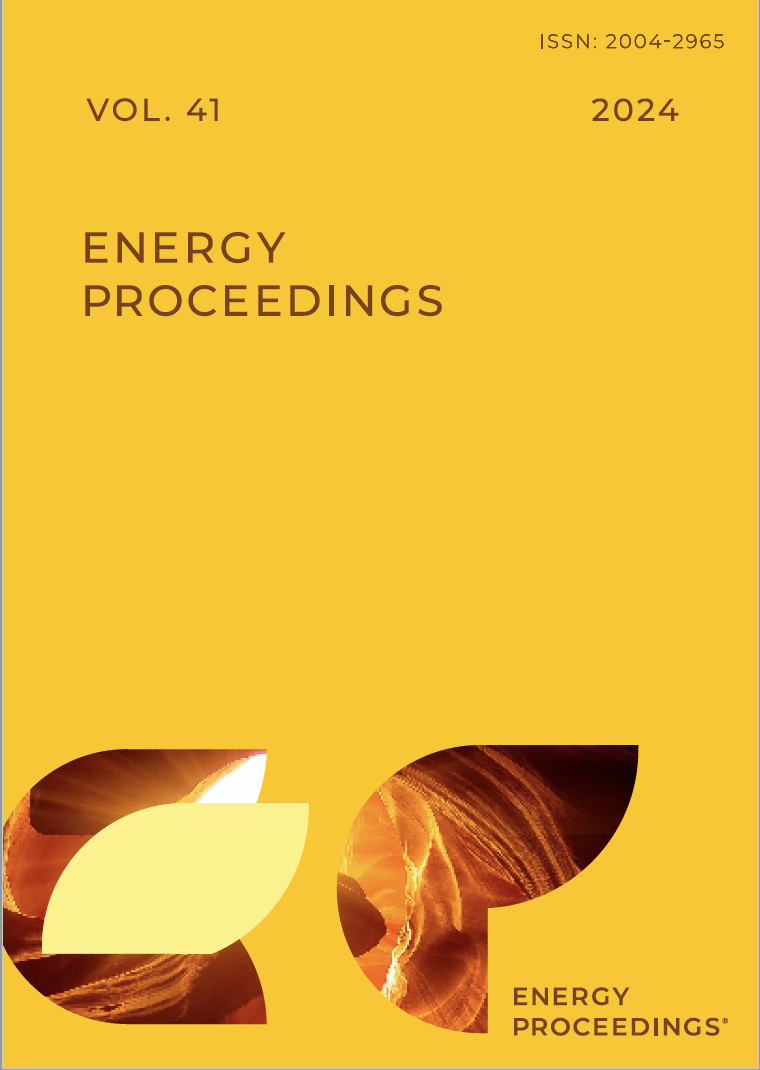
Volume 41: Energy Transitions toward Carbon Neutrality: Part IV
ISSN 2004-2965
Techno-economic analysis on the integration of an electrified clay calcination process into a cement plant
Bruno Laurini, Yi Zong, Chresten Træholt, Sebastian Andres Quevedo Parra, Meenakshisundaram Shanmugasundaram
Download PDF
Article Preview
Development and validation of data-driven soft sensors for heat pumps
Yang Song, Davide Rolando, Javier Marchante Avellaneda, Gerhard Zucker, Hatef Madani
Download PDF
Article Preview
Comparative Study of Machine Learning Algorithms for Predicting Steam-assisted Gravity Drainage (SAGD) Production Performance
Bin Wang, Shijun Huang, Fenglan Zhao, Yue Chen, Xinhan Fan
Download PDF
Article Preview
Challenges And Opportunities of the Implementation of NetZero Strategy: Analysis of Key Issues that Affect the Adoption of Domestic Renewable Energy in the UK from Consumers’ Perspective
Benjamin Nweke and Amin Al-Habaibeh
Download PDF
Article Preview
Towards more sustainable urban transportation for NetZero cities: Assessing air quality and risk for e-scooter users using sensor fusion and artificial intelligence
Amin Al-Habaibeh, Matthew Watkins, Bubaker Shakmak, Maryam Bathaei Javareshk, Seamus Allison
Download PDF
Article Preview
Direct quantification of anthropogenic CO2 emissions: Insights from Satellite Observations
Bo Huang, Jia He
Download PDF
Article Preview
Electrochemical Performance of Dual-layer Carbon Electrodes for Aqueous Redox Flow Batteries
Baichen Liu, Salvatore De Angelis, Vedrana Andersen Dahl, S∅ren Bredmose Simonsen, Johan Hjelm
Download PDF
Article Preview
Towards Sustainable Fertilizer Production: Cost Comparison of Flexible and Continuous Electrolytic Ammonia Production
Stefano Mingolla, Kevin Rouwenhorst, Paolo Gabrielli, Giovanni Sansavini, Magdalena M. Klemun, Zhongming Lu
Download PDF
Article Preview
Enhancing the Discharge Performance of Liquid Metal Batteries through External Magnetic Fields
Xianbo Zhou, Kai Jiang, Kangli Wang
Download PDF
Article Preview
Systematic Comparison of Imputation Models for Automatized Gap Filling on Electrical Load Data of Compressor Composites in the Industrial Sector
Anna Harman, Lukas Baur, Alexander Sauer
Download PDF
Article Preview

Copyright ©
Energy Proceedings

